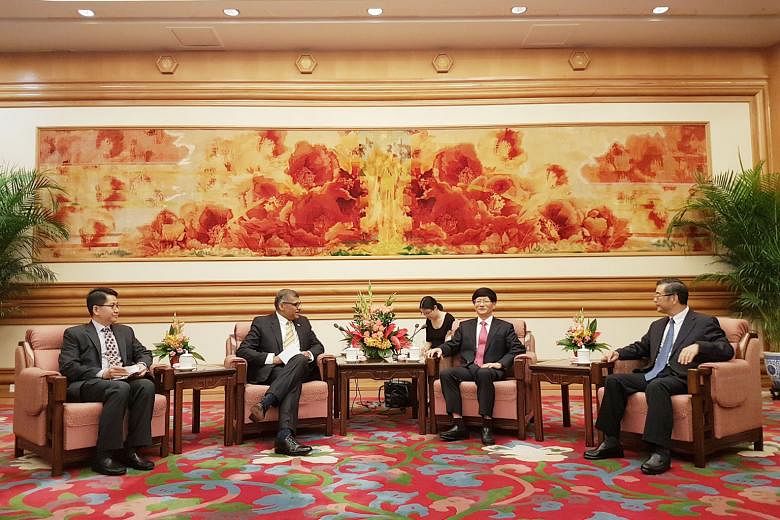Singapore can learn from China's experience in harnessing technology in the courts, Chief Justice Sundaresh Menon said yesterday in Beijing.
During his two-day visit to the Chinese capital, he was shown several examples of how China is using technology in legal and judicial management.
One was a database of more than 32 million judgments that the Chinese legal officials took five years to put online.
"This is a tremendous step forward in terms of using technology to legitimise the law, making it transparent. People can access your website to find out exactly how decisions are made in all of these cases," Chief Justice Menon told Singapore reporters yesterday.
The use of technology in the courts will be one key area of collaboration between Singapore and China going forward, he said.
While Singapore had been "early embracers" of the power of technology in court management, he thinks that China may well be the world leader in the use of technology in this area now.
"The ability for us to learn from a friend like China is hugely beneficial. They, too, will find value in listening to what we've done and studying what we've done," he said.
Chief Justice Menon noted that China has recently set up its first specialised court to handle online disputes in Hangzhou of eastern Zhejiang province. "It is certainly an area that we would like to study very closely," he added.
On Monday, Chief Justice Menon co-chaired the inaugural Singapore-China Legal and Judicial Roundtable with his Chinese counterpart Zhou Qiang. The round-table talk will be held annually, and Singapore will host the next session next year. Both countries also signed a memorandum of understanding to further cooperation in legal and judicial matters.
Yesterday, Chief Justice Menon met Mr Meng Jianzhu, a Politburo member of the Chinese Communist Party and the secretary of the party's Central Political and Legal Affairs Commission.
Singapore's cooperation with China in judicial matters comes as China focuses its attention on building a law-based socialist country.
Chinese leaders and the media have been placing special emphasis on discussions of the importance of the rule of law in recent months. Last Friday, state broadcaster CCTV started airing a six-part political documentary - The Rule Of Law In China - which summarises the progress made in the Chinese legal system in the past five years.
Chief Justice Menon noted that there is a common commitment between the two countries to strengthening the rule of law, particularly to support economic activity.
"If you look at the Singapore story over the last 50 odd years, the rule of law has been foundational to advancing our economic prosperity and foundational to the broad economic relationships that we've established.
"It's certainly a subject of great interest to our friends in China as well," he said.
He added that having met many of the top Chinese legal officials, including the chief justice and the top procurator, he is left with a "very firm impression that they are deeply committed to the rule of law".
He observed that the Chinese are fully aware that the legal framework is what underlies trade and investment.
"That's why there's a great deal of interest in furthering these discussions on the rule of law... It's a discussion that we are very happy to have with them, because we share the same view," he said.
When asked if he is worried that Singapore's collaboration with China on legal and judicial matters may be seen as an endorsement of what appears to be a lack of justice and fairness in some political and human rights cases, Chief Justice Menon replied: "It's not for us to judge anybody else's system. Just like it's not for anybody else to judge our system. Every system needs to identify and find its own social order that works for its people."

